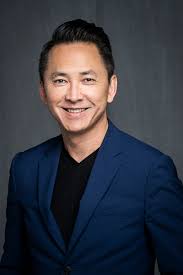
For most, the year 2020 couldn’t end soon enough. It finished on more than one sour note, two of them being Covid’s sprawling gains and Donald Trump’s all-consuming narcissism, which rendered itself both in his pouting refusal to accept defeat and in his willingness to burn down the country as retribution for that defeat.
Less seen but equally disturbing is a trend that popped up in the literary scene: critics who have decided what writers should and should not be writing about under circumstances such as these. Two good examples appeared in The New York Times just as the year 2020 fizzled out.
Let’s start with the lesser of the two: Times critic Dwight Garner’s review of Together in a Sudden Strangeness: America’s Poets Respond to the Pandemic, edited by Alice Quinn. Garner panned the book in a big way, which is his right. It’s what critics do, after all.
What struck me as odd, though, was Garner’s reasoning. He lifted a Salman Rushdie quote on what a poet’s work is: “to name the unnamable, to point at frauds, to take sides, start arguments, shape the world and stop it from going to sleep,” and used it as both beginning and end — as propped-up Gospel and reason to rip the majority of the book’s poems:
“Much of the tepid free verse is about flowers. Or birds. Or trees. Harold Ross, when he edited The New Yorker, was wise to rage against tree poems.
“Three poems talk about senior hours at the supermarket. Others consider Netflix, pesto, almond tarts, tidying up the pantry, going for a drive, owning six boxes of penne that is gluten-free. ‘Free the Glutens’ was Tom Waits’s memorable chant. ‘They’ve never had a country of their own.’
“A few of these poems evoke the realities of blue-collar life, but mostly they’ve been written as if by comfortable indoor cats.”
It’s snarky fun and makes for splashy press, but it all sounds rather imperious, as if definitions of poetry are the province of Salman Rushdie (and his pawns) or, for that matter, Salman Rushdie alone. Yes, that’d be a Salman Rushdie who does not write poetry — or, if he does, certainly doesn’t specialize in it.
Bigger transgressions occurred on The Times front page, where novelist Viet Thanh Nguyen penned an op-ed piece called “The Post-Trump Future of Literature: What Will Writers Do When the Outrage Is Over? Will They Go Back to Writing About Flowers and Moons?”
It’s a rhetorical question, obviously. Yes, they will, Nguyen complains, but no, they should not. His argument is that writers should be dealing in politics by writing against colonialism, war, white privilege, and similar riders of the apocalypse.
In Nguyen’s opinion, at present, only marginalized writers are holding up their end of the deal:
“Mr. Trump destroyed the ability of white writers to dwell in the apolitical. Everyone had to make a choice, especially in the face of a pandemic and the killing of George Floyd, both of which brought the life-or-death costs of systemic racism and economic inequality into painful focus.
“But in 2021, will writers, especially white writers, take a deep breath of relief and retreat back to the politics of the apolitical, which is to say a retreat back to white privilege?
“Explicit politics in American poetry and fiction has mostly been left to the marginalized: writers of color, queer and trans writers, feminist writers, anticolonial writers.”
It is a call to arms against arms, and a noble one in spirit, but there’s one small problem with its packaging. As was true with Garner’s criticisms, Nguyen is not so much suggesting as demanding that writers dive into blue collar slash political slash social justice issues. Ironically, his op-ed piece is a type of colonialism unto itself — occupying and suppressing, as it does, writers’ choice and free will. Instead of the ignominious “Build a wall, because I said so!” we get an equally ignominious “Write political outrage, because I said so!”
It all reminds me of high school, where writing topics were dictated by the indisputable arbiter and iron rule of the teacher. If a student was moved by, say, nature, his or her topic was forbidden or frowned upon. Robert Frost, you can take this note to the office while the rest of us write about the assigned topic, and all that.
The poet Jericho Brown, in an interview, says that all love poems are about politics and all political poems are about love. His is a wider, more generous scope, allowing writers to write what they know best and / or what moves them, allowing readers to not only choose their own subject matter but to interpret their readings in more metaphorical ways.
If we as readers are not happy about moon or flower or tree poems, we are free to use our ultimate power and not read books about such frivolous topics. And if we are more invested in crows circling over a pond on a windy fall day than the whims of Mitch McConnell’s power plays in Washington, so be it.
Both of these come from the same basic rights that make us free — at least in a democratic society — to define poetry or any other genre for others, and to say what should or should not be written and judge writers not by how they write, but by what they write. That is, I disagree with Rushdie, Garner, and Nguyen, but in the spirit of Voltaire. I defend their right to rant about it, even while I question their logic.
After all, these words themselves are political. They are my choice — a word I happen to like more than Garner or Nguyen do, I think.